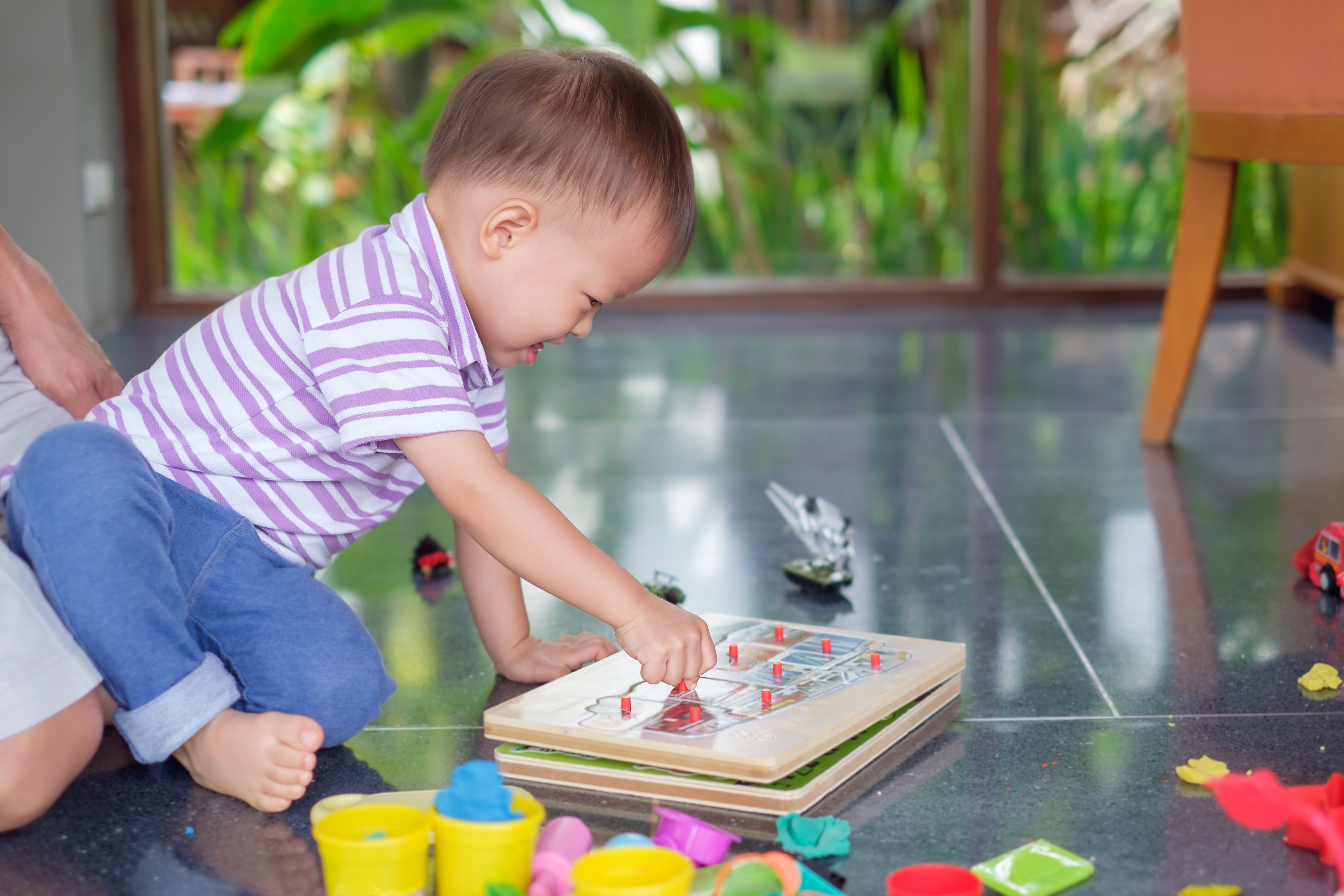Book look.
Turn storytime into an active play experience by going on a shape safari! Grape a picture book, flip through the pages, and encourage your little one to find shapes with you (like the triangle roof on a house or the circle of a bunny’s face).
Puzzle pursuit.
Add on an extra challenge (and a bit of gross motor practice) to puzzle play. Hide jumbo puzzle pieces around the house and encourage your child to find them and put them back together. (If you’re using small puzzle pieces, hide them inside plastic eggs for an afternoon egg hunt).
Place and trace.
Make your own shape puzzle using everyday toys or even household objects – anything from small toys to spatulas. Trace their shapes onto a piece of construction paper, then challenge your child to match the outlines to the object.
Chock-full of blocks.
Give your little one a small box or box lid and a whole bunch of wooden building blocks. Can they pack the box with blocks so that there’s no empty space left? (as an alternative, you can use masking tape to draw a frame right onto the floor, then challenge your child to fill it).
Smart art.
For a more open-ended puzzle experience cut out a variety of construction-paper shapes in different sizes and colors. Invite your little one to create a picture by flipping, turning, and rearranging the shapes, then gluing them onto a sheet of paper.
